I’ve spent a good while now with a little desktop amplifier, a hybrid design that will drive both your most demanding cans and – when the switch is thrown – a pair of small desktop loudspeakers. I’ve taken longer than usual to compile my thoughts about the EF100 – longer than promised, actually – and I came to the conclusion that it is so well-suited to my needs and listening habits that I could not allow it to leave.
This amounts to a conclusive statement of the sort that I loathe reading from reviewers. You know the one – “I loved it so much that I bought the review sample!” I despise reading that phrase, or variations of thereupon. A bitter, shivering cringe subsumes me. An acrid drop or two of bile erupts in my throat. Blood pressure and pulse rise such that I can hear it coursing in my own eardrums. And here I am writing it.
I’m sorry.
I’m sorry for the hypocrisy and double standard, because I know that future cringing judgements will continue to be my reaction to other reviewers abusing that declaration, that atrociously pandering signal, that crutch posing as authenticator. I’m ashamed of my judgy judginess.
I bought the EF100.
Though I became aware of Dr. Bian’s work by virtue of having listened to a couple of his magnetoplanar headphone designs (courtesy of Jack Wu’s comprehensive setup at the NYAS a few years back), it was his original portable player – the HM801 – that launched the commercial exploits of the company. I remember having the opportunity to listen to the player thanks to my dear Moscovite friend, Misha (who has been developing his own IEM for nearly 10 years now), during one of his 2009’ish visits to Atlanta. I remember being impressed with the performance of the little player, and of his early prototype IEM, but was unaware of it’s provenance at the time.
How I came to encounter the EF100 is textbook reviewer stuff: It all started at the CanJam at Rocky Mountain Audiofest this past October, when my partner Frank Iacone and I happened upon the HiFiMAN booth. Frank happens to be close friends with HiFiMAN’s Dr. Fang Bian, and so he introduced me and – in turn – Dr. Bian introduced me to some of his products. Prominent at the table was the silvery EF100, hardly roughly the footprint of a Mac Mini, it’s transformer cap and tube cage gently rising from it’s sloping deck. One of Dr. Bian’s several portable players was perched thereupon, kept from slipping off by a modest rectangular lip implanted for that specific purpose. The performance through headphones was reason enough for me to want to request a review sample, but the fact that it would also drive moderately efficient loudspeakers was compelling enough for me to vocalize the desire to Frank.
Thanks to his longstanding relationship with Dr. Bian, Frank was able to procure the review sample for me through his market-development partner, Peter Hoagland. The EF100 arrived near the end of November, and has been the hero of my desktop ever since.
The EF100 has been used in most, but not all, of its capacities here at Chez Guru. As an amplifier, it has been used to drive a variety of headphones and IEMs as well as a pair of Anthony Gallo A’Diva loudspeakers. I have used its CD input to receive audio signal from an iFi iDSD Micro – itself being fed via USB from my iMAC music system (iTunes +Amarra) with a Schiit WYRD ‘descrewifier’ in between, and also via its “LINE-IN” input that accepts a 3.5mm stereo plug from portable players such as those offered by HiFiMAN. In my case, I’ve used the reference-level and everpresent Astell&Kern AK120II and – more recently – this killer new portable DACAMP from Celsus Sound: the Companion One.
The EF100 does have an internal USB DAC, but because it’s resolution-limit is 48k I elected not to evaluate that function in depth. I did test it, it seems to work reasonably well (and is the perfect compliment in a pinch), but high-resolution conversion can now be had for entry level prices so it wasn’t necessarily a function that I thought my readers would be all that interested in. As well, the value of the EF100 seems overt to me – even without the internal USB DAC capability – such that an ample argument in its favor could be made easily enough.
Musically, I spend most of my music-time at the desktop listening to streaming from TIDAL. Thanks to this revolutionary full-resolution service, I’ve been turned on to a lot of new music and, as a result, have purchased several new LPs. Most recently that has amounted to a pair of albums by Punch Brothers (The Phosphorescent Blues, Antifogmatic) and two copies of Father John Misty’s “Fear Fun” – a second one as a backup, such is my attachment to that record! I switch to my library of tunes, especially when I want to listen to high resolution material, using Amarra to handle the playback through the iFi iDSD Micro. I’ve got several DSD tracks that I can load directly into Amarra’s playlist, but they live only to represent DSD and aren’t to my taste in music for long term listening. I can appreciate the accomplishment of DSD, but have yet to find much if any music I’d be willing to buy for sheer enjoyment purposes. And they’re so damn expensive!
If I happen to be listening to the AK120 II as my portable player companion and return to the desk, I’ll plug it into the EF100 via the 3.5mm cable – switch the AK’s output to LINE OUT – and continue listening to the album or playlist through the EF100 driving the Gallo A’DIVAs. If I’m listening to an album, I’ll let it play though in the correct track order, but if I’m listening to a playlist that’s a mix of tunes or a shuffle of all the tracks on the player, I’ll sometime employ A&K’s little remote control to skip between tracks – especially if I’m leaning like a lazy Larry back in my chair and don’t want to sit up enough to actually touch the player. Yes, I’m getting spoiled.
My home office area is shared by my wife, and we have identical Ikea EXPEDIT desk setups. When she’s not working at her desk, I tend to listen to the EF100 driving the loudspeakers. When she is working there, I switch to cans so as not to disturb her. I’ll also switch to cans when the kids are home in order to shut out their playful clamor. Lastly, my late-night listening is always headphonic in order to indulge in these delights without waking the sleeping family.
As a headphone amplifier, the EF100 is certainly more than capable. Able to deliver 2 watts into 32 Ohms, it will drive just about anything you’ve got – including all of those less-amp-friendly magnetoplanar designs. I’ve spent many an hour listening to the LCD-3 and basking in the luxury of that signature midrange resplendence, radiant harmonic delivery, effervescent trebles, and snap-quick LF impact. Compared to other amps that I’ve had here, I’d say that – with the LCD-3 – the EF100 seems a bit flatter in response than most. It doesn’t seem like there’s a midrange hump, or a bass bump either (typical areas of enhancement). This more-or-less “neutral” presentation allows me to distinguish quite easily between the sound of various recordings and recording techniques, as there’s no apparent masking going on.
Listening to the beautiful Nuevo-Tango tunes from MA Recordings’ Sera Un Noche high-res offerings, for instance, puts me in that recording space and helps me to envision the spread quite naturally. The spaciousness of Garfinkle’s recording is the stuff of legend, of course, but because spatial cues can be somewhat delicate these are also easily masked by overtly colored components. Contrastingly, the acoustic signature and the general studio-sound of Sufjan Stevens’ album, Seven Swans, is more readily apparent than it has been with other setups I’ve had here. As a bit of a neutral-reference, the EF100 seems well-suited to the task.
But this is always a double-edged sword, as it will also show up the flaws in some recordings. For instance, listening to my download of Flying Lotus’ “You’re Dead!” can border on painfully crunchy at times. The same is only marginally true for Nils Frahm: “Juno Reworked” (remixes by Luke Abbot, Clark) – there’s a borderline-annoying bite to some of the tracks, though also some tasty analog-synthiness. I’m a fan of Erased Tapes, generally, and love this Nils Frahm album especially. But when delving into more synthetic music of this kind, and even of the more aggressive kind, I find myself switching to the Master&Dynamic MH40 as it’s balanced a little more forgivingly and – thankfully – mates rather symbiotically with the EF100.
Take FKA Twigs, for example. I’ve become a fan of her music recently, and especially the creativity expressed in the production, but through the LCD-3 and the EF100 listening becomes a minor exercise in masochism. Meanwhile, with the MH40 it’s a thoroughly enjoyable experience. These are complex productions that draw from various influences to create a kind of “Nu-R&B” sound that’s musically compelling and downright interesting to listen to. Meanwhile, though a bit odd and edgy, her video productions aren’t hard to look at, either. Plug in your cans and have a listen while watching this:
A similar issue with the various Daisuke Tanabe material I’ve got (original or guesting on other albums), though not as borderline-painful. One of my favorite albums is represented by the work he did with/for Kidkanevil on “Kidsuke” – another fantastic group of synth-tuneage that you should definitely grab your cans and listen to. The full album is on YouTube and, although not hi-res by any measure, it’ll give you a sense of the whimsical creativity that Tanabe brings to the party:
Flying Lotus? Depends on the track, but the download is a chore (while the LP is far more listenable to me). That’s a shame, because I dig this album more than his older ones and wanted it to be spectacular-sounding.
Now on to the other half of the EF100’s raison d’être – the amplification of loudspeakers.
The spec on the output of the amplifier is 4.5w into a 4Ω load, which likely translates into half that into an 8Ω load (if we’re to believe that traditional maths). According to the HiFiMAN website, the amp – though driven by a 6N3J tube – does all the heavy lifting with a digital amplifier stage. Whether that is a Tripath style, an ICE module, or something else … I don’t know. Fact is I don’t much care about too many tech details when it comes to these things. I care about performance outcome alone, and therefore I let the device speak for itself in my desktop setup.
This means that the EF100 would be driving a set of Anthony Gallo A’DIVA (the old model, not the latest). These have been my desktop references for a long while, as they’re very transparent and revealing of minute changes. Full-range, single dynamic 3″ driver, no crossover, in a diffraction-less spherical enclosure. They sit atop ring-like rubber grommets to decouple them from the desktop, which is important for keeping them from directly resonating the surface of the desk. Though these little drivers can’t reach low frequencies very well, the proximity effect lent to them by the desktop and the wall behind the desk does a good job of shoring up at least some LF.
The EF100 shines in this situation, especially with material that is acoustically spacious (whether that effect is achieved by natural or artificial means). I’m a bit of a soundstaging and imaging addict, as I love the rendered illusion of space and musicians within that space. It’s obviously a very different experience of spatiality than presented by headphones, which immerse the listener in a much more personal soundfield. Loudspeakers project the illusion in front of you, and the space extends front to back, and left to right – a delightful experience in its own right, and something many of us old-timers remain addicted to.
I’m listening now to a fantastically fun album that was published several years back by the chamber group, Alarm Will Sound. Entitled “Acoustica” it purports to be the music of Aphex twin performed with live, acoustic instruments. Though I don’t know many audiophiles who are also Aphex Twin fans, there are a few. I remember once bringing my Windowlicker LP to a CES where I was demonstrating the Continuum Caliburn with massive German Physiks PQS 402 loudspeakers, driven by equally leviathan Boulder monoblocs. This is the kind of system audiophile showgoers want to play their precious Joni Mitchell and Phoebe Snow LPs on, so when I slipped in Windlowlicker … you can imagine the deep, fundamental shock experienced by the audiophile blancmanges sitting in the rows. I won’t post the video here (it’s kind of disturbing and NSFW – at all), but search “Windowlicker” on YouTube if you’re at all curious.
Meanwhile, Alarm Will Sound’s acoustically-performed variations on Aphex Twin tracks is kind of amazing, even for the gelatinous audiophile-types that usually cling to their Rebecca Pigeon CDs and their Amanda McBroom LPs. Grab your cans again and have a listen to AWS’s version of “Blue Calx”:
Through the EF100, driven by the iFi iDSD Micro and driving the Gallo A’DIVAs, this gets rendered into an audiophile fantasyland of spaciousness and liquidity – and because it’s live instruments performing in an acoustic space – even my old friend Harry Pearson might approve. Though it wants for a sub, which I’d install if I had room under the desk, the music nevertheless flows otherwise (and sweetly) unrestricted into a vast soundfield filled with lustrous harmonics and succulent midrange resonance.
It is important to note, though, that the power brought by the EF100 isn’t so much that you can throw just any pair of speakers at it, willy-nilly. The A’DIVAs are not so sensitive, of course, but in the nearfield (ca: 18″ from my listening position), the EF100 provides enough power such that the sound pressure is satisfying. I also tested the Davone Mojo with the EF100 and was surprised and impressed – so much so that, if I had a larger (wider) desk, I’d probably keep them working their omni magic (especially because they deliver way more and better LF than the A’DIVAs in this nearfield situation).
Alas, my desk is far too small to make this a practical setup – but that doesn’t mean you can’t try it out. It’s such a nice combination that I’d be quite happy showing it off in demo for folks who would balk at the idea of a little 4.5w digital amp driving inefficient omni monitors. The combination defies logic in the most musically charming ways! Especially when listening to some of the Checky “Binaural” recordings of guitar jazz, the omni-mic’d purist stuff from MA recordings, and – of course – the Blumlein-mic’d recordings made by Kavi Alexander for his Waterlily Acoustics label. When it comes to audiophilic indulgences, this is the kind of stuff I allow myself to “cheat” with …
In all, I will say that the HiFiMAN EF100 amplifier is everything I hoped it would be. At $500, I suspect that this is among one of the most valuable (price-to-performance) HiFi objects in all of Headphonia right now. They could remove the USB DAC and add $100 to the retail and I’d still think it was more than worth the expenditure – not just for the entry-level, but as a convincing argument against buying more expensive options. I’m sure that the success of this design should inspire others to enter the underserved segment of headphone+speaker desktop amps, but for now – at this price level, anyway – there doesn’t seem to be any credible competition. For the moment, the EF100 stands alone in its ability to deliver performance and versatility for an unreasonably affordable price.
So, at the risk of causing you to cringe, I admit – once again and for the record – I bought the bloody thing, and I love it.
This amounts to a conclusive statement of the sort that I loathe reading from reviewers. You know the one – “I loved it so much that I bought the review sample!” I despise reading that phrase, or variations of thereupon. A bitter, shivering cringe subsumes me. An acrid drop or two of bile erupts in my throat. Blood pressure and pulse rise such that I can hear it coursing in my own eardrums. And here I am writing it.
I’m sorry.
I’m sorry for the hypocrisy and double standard, because I know that future cringing judgements will continue to be my reaction to other reviewers abusing that declaration, that atrociously pandering signal, that crutch posing as authenticator. I’m ashamed of my judgy judginess.
I bought the EF100.
Though I became aware of Dr. Bian’s work by virtue of having listened to a couple of his magnetoplanar headphone designs (courtesy of Jack Wu’s comprehensive setup at the NYAS a few years back), it was his original portable player – the HM801 – that launched the commercial exploits of the company. I remember having the opportunity to listen to the player thanks to my dear Moscovite friend, Misha (who has been developing his own IEM for nearly 10 years now), during one of his 2009’ish visits to Atlanta. I remember being impressed with the performance of the little player, and of his early prototype IEM, but was unaware of it’s provenance at the time.
How I came to encounter the EF100 is textbook reviewer stuff: It all started at the CanJam at Rocky Mountain Audiofest this past October, when my partner Frank Iacone and I happened upon the HiFiMAN booth. Frank happens to be close friends with HiFiMAN’s Dr. Fang Bian, and so he introduced me and – in turn – Dr. Bian introduced me to some of his products. Prominent at the table was the silvery EF100, hardly roughly the footprint of a Mac Mini, it’s transformer cap and tube cage gently rising from it’s sloping deck. One of Dr. Bian’s several portable players was perched thereupon, kept from slipping off by a modest rectangular lip implanted for that specific purpose. The performance through headphones was reason enough for me to want to request a review sample, but the fact that it would also drive moderately efficient loudspeakers was compelling enough for me to vocalize the desire to Frank.
Thanks to his longstanding relationship with Dr. Bian, Frank was able to procure the review sample for me through his market-development partner, Peter Hoagland. The EF100 arrived near the end of November, and has been the hero of my desktop ever since.
The EF100 has been used in most, but not all, of its capacities here at Chez Guru. As an amplifier, it has been used to drive a variety of headphones and IEMs as well as a pair of Anthony Gallo A’Diva loudspeakers. I have used its CD input to receive audio signal from an iFi iDSD Micro – itself being fed via USB from my iMAC music system (iTunes +Amarra) with a Schiit WYRD ‘descrewifier’ in between, and also via its “LINE-IN” input that accepts a 3.5mm stereo plug from portable players such as those offered by HiFiMAN. In my case, I’ve used the reference-level and everpresent Astell&Kern AK120II and – more recently – this killer new portable DACAMP from Celsus Sound: the Companion One.
The EF100 does have an internal USB DAC, but because it’s resolution-limit is 48k I elected not to evaluate that function in depth. I did test it, it seems to work reasonably well (and is the perfect compliment in a pinch), but high-resolution conversion can now be had for entry level prices so it wasn’t necessarily a function that I thought my readers would be all that interested in. As well, the value of the EF100 seems overt to me – even without the internal USB DAC capability – such that an ample argument in its favor could be made easily enough.
Musically, I spend most of my music-time at the desktop listening to streaming from TIDAL. Thanks to this revolutionary full-resolution service, I’ve been turned on to a lot of new music and, as a result, have purchased several new LPs. Most recently that has amounted to a pair of albums by Punch Brothers (The Phosphorescent Blues, Antifogmatic) and two copies of Father John Misty’s “Fear Fun” – a second one as a backup, such is my attachment to that record! I switch to my library of tunes, especially when I want to listen to high resolution material, using Amarra to handle the playback through the iFi iDSD Micro. I’ve got several DSD tracks that I can load directly into Amarra’s playlist, but they live only to represent DSD and aren’t to my taste in music for long term listening. I can appreciate the accomplishment of DSD, but have yet to find much if any music I’d be willing to buy for sheer enjoyment purposes. And they’re so damn expensive!
If I happen to be listening to the AK120 II as my portable player companion and return to the desk, I’ll plug it into the EF100 via the 3.5mm cable – switch the AK’s output to LINE OUT – and continue listening to the album or playlist through the EF100 driving the Gallo A’DIVAs. If I’m listening to an album, I’ll let it play though in the correct track order, but if I’m listening to a playlist that’s a mix of tunes or a shuffle of all the tracks on the player, I’ll sometime employ A&K’s little remote control to skip between tracks – especially if I’m leaning like a lazy Larry back in my chair and don’t want to sit up enough to actually touch the player. Yes, I’m getting spoiled.
My home office area is shared by my wife, and we have identical Ikea EXPEDIT desk setups. When she’s not working at her desk, I tend to listen to the EF100 driving the loudspeakers. When she is working there, I switch to cans so as not to disturb her. I’ll also switch to cans when the kids are home in order to shut out their playful clamor. Lastly, my late-night listening is always headphonic in order to indulge in these delights without waking the sleeping family.
As a headphone amplifier, the EF100 is certainly more than capable. Able to deliver 2 watts into 32 Ohms, it will drive just about anything you’ve got – including all of those less-amp-friendly magnetoplanar designs. I’ve spent many an hour listening to the LCD-3 and basking in the luxury of that signature midrange resplendence, radiant harmonic delivery, effervescent trebles, and snap-quick LF impact. Compared to other amps that I’ve had here, I’d say that – with the LCD-3 – the EF100 seems a bit flatter in response than most. It doesn’t seem like there’s a midrange hump, or a bass bump either (typical areas of enhancement). This more-or-less “neutral” presentation allows me to distinguish quite easily between the sound of various recordings and recording techniques, as there’s no apparent masking going on.
Listening to the beautiful Nuevo-Tango tunes from MA Recordings’ Sera Un Noche high-res offerings, for instance, puts me in that recording space and helps me to envision the spread quite naturally. The spaciousness of Garfinkle’s recording is the stuff of legend, of course, but because spatial cues can be somewhat delicate these are also easily masked by overtly colored components. Contrastingly, the acoustic signature and the general studio-sound of Sufjan Stevens’ album, Seven Swans, is more readily apparent than it has been with other setups I’ve had here. As a bit of a neutral-reference, the EF100 seems well-suited to the task.
But this is always a double-edged sword, as it will also show up the flaws in some recordings. For instance, listening to my download of Flying Lotus’ “You’re Dead!” can border on painfully crunchy at times. The same is only marginally true for Nils Frahm: “Juno Reworked” (remixes by Luke Abbot, Clark) – there’s a borderline-annoying bite to some of the tracks, though also some tasty analog-synthiness. I’m a fan of Erased Tapes, generally, and love this Nils Frahm album especially. But when delving into more synthetic music of this kind, and even of the more aggressive kind, I find myself switching to the Master&Dynamic MH40 as it’s balanced a little more forgivingly and – thankfully – mates rather symbiotically with the EF100.
Take FKA Twigs, for example. I’ve become a fan of her music recently, and especially the creativity expressed in the production, but through the LCD-3 and the EF100 listening becomes a minor exercise in masochism. Meanwhile, with the MH40 it’s a thoroughly enjoyable experience. These are complex productions that draw from various influences to create a kind of “Nu-R&B” sound that’s musically compelling and downright interesting to listen to. Meanwhile, though a bit odd and edgy, her video productions aren’t hard to look at, either. Plug in your cans and have a listen while watching this:
A similar issue with the various Daisuke Tanabe material I’ve got (original or guesting on other albums), though not as borderline-painful. One of my favorite albums is represented by the work he did with/for Kidkanevil on “Kidsuke” – another fantastic group of synth-tuneage that you should definitely grab your cans and listen to. The full album is on YouTube and, although not hi-res by any measure, it’ll give you a sense of the whimsical creativity that Tanabe brings to the party:
Flying Lotus? Depends on the track, but the download is a chore (while the LP is far more listenable to me). That’s a shame, because I dig this album more than his older ones and wanted it to be spectacular-sounding.
Now on to the other half of the EF100’s raison d’être – the amplification of loudspeakers.
The spec on the output of the amplifier is 4.5w into a 4Ω load, which likely translates into half that into an 8Ω load (if we’re to believe that traditional maths). According to the HiFiMAN website, the amp – though driven by a 6N3J tube – does all the heavy lifting with a digital amplifier stage. Whether that is a Tripath style, an ICE module, or something else … I don’t know. Fact is I don’t much care about too many tech details when it comes to these things. I care about performance outcome alone, and therefore I let the device speak for itself in my desktop setup.
This means that the EF100 would be driving a set of Anthony Gallo A’DIVA (the old model, not the latest). These have been my desktop references for a long while, as they’re very transparent and revealing of minute changes. Full-range, single dynamic 3″ driver, no crossover, in a diffraction-less spherical enclosure. They sit atop ring-like rubber grommets to decouple them from the desktop, which is important for keeping them from directly resonating the surface of the desk. Though these little drivers can’t reach low frequencies very well, the proximity effect lent to them by the desktop and the wall behind the desk does a good job of shoring up at least some LF.
The EF100 shines in this situation, especially with material that is acoustically spacious (whether that effect is achieved by natural or artificial means). I’m a bit of a soundstaging and imaging addict, as I love the rendered illusion of space and musicians within that space. It’s obviously a very different experience of spatiality than presented by headphones, which immerse the listener in a much more personal soundfield. Loudspeakers project the illusion in front of you, and the space extends front to back, and left to right – a delightful experience in its own right, and something many of us old-timers remain addicted to.
I’m listening now to a fantastically fun album that was published several years back by the chamber group, Alarm Will Sound. Entitled “Acoustica” it purports to be the music of Aphex twin performed with live, acoustic instruments. Though I don’t know many audiophiles who are also Aphex Twin fans, there are a few. I remember once bringing my Windowlicker LP to a CES where I was demonstrating the Continuum Caliburn with massive German Physiks PQS 402 loudspeakers, driven by equally leviathan Boulder monoblocs. This is the kind of system audiophile showgoers want to play their precious Joni Mitchell and Phoebe Snow LPs on, so when I slipped in Windlowlicker … you can imagine the deep, fundamental shock experienced by the audiophile blancmanges sitting in the rows. I won’t post the video here (it’s kind of disturbing and NSFW – at all), but search “Windowlicker” on YouTube if you’re at all curious.
Meanwhile, Alarm Will Sound’s acoustically-performed variations on Aphex Twin tracks is kind of amazing, even for the gelatinous audiophile-types that usually cling to their Rebecca Pigeon CDs and their Amanda McBroom LPs. Grab your cans again and have a listen to AWS’s version of “Blue Calx”:
Through the EF100, driven by the iFi iDSD Micro and driving the Gallo A’DIVAs, this gets rendered into an audiophile fantasyland of spaciousness and liquidity – and because it’s live instruments performing in an acoustic space – even my old friend Harry Pearson might approve. Though it wants for a sub, which I’d install if I had room under the desk, the music nevertheless flows otherwise (and sweetly) unrestricted into a vast soundfield filled with lustrous harmonics and succulent midrange resonance.
It is important to note, though, that the power brought by the EF100 isn’t so much that you can throw just any pair of speakers at it, willy-nilly. The A’DIVAs are not so sensitive, of course, but in the nearfield (ca: 18″ from my listening position), the EF100 provides enough power such that the sound pressure is satisfying. I also tested the Davone Mojo with the EF100 and was surprised and impressed – so much so that, if I had a larger (wider) desk, I’d probably keep them working their omni magic (especially because they deliver way more and better LF than the A’DIVAs in this nearfield situation).
Alas, my desk is far too small to make this a practical setup – but that doesn’t mean you can’t try it out. It’s such a nice combination that I’d be quite happy showing it off in demo for folks who would balk at the idea of a little 4.5w digital amp driving inefficient omni monitors. The combination defies logic in the most musically charming ways! Especially when listening to some of the Checky “Binaural” recordings of guitar jazz, the omni-mic’d purist stuff from MA recordings, and – of course – the Blumlein-mic’d recordings made by Kavi Alexander for his Waterlily Acoustics label. When it comes to audiophilic indulgences, this is the kind of stuff I allow myself to “cheat” with …
In all, I will say that the HiFiMAN EF100 amplifier is everything I hoped it would be. At $500, I suspect that this is among one of the most valuable (price-to-performance) HiFi objects in all of Headphonia right now. They could remove the USB DAC and add $100 to the retail and I’d still think it was more than worth the expenditure – not just for the entry-level, but as a convincing argument against buying more expensive options. I’m sure that the success of this design should inspire others to enter the underserved segment of headphone+speaker desktop amps, but for now – at this price level, anyway – there doesn’t seem to be any credible competition. For the moment, the EF100 stands alone in its ability to deliver performance and versatility for an unreasonably affordable price.
So, at the risk of causing you to cringe, I admit – once again and for the record – I bought the bloody thing, and I love it.

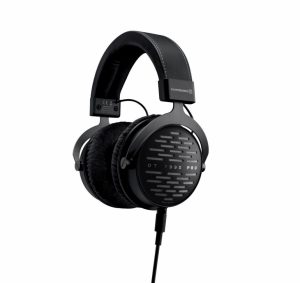
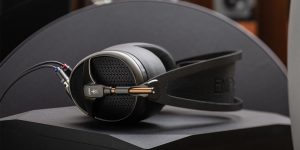
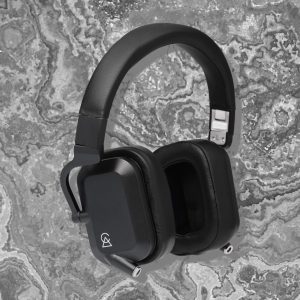
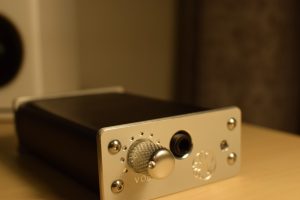
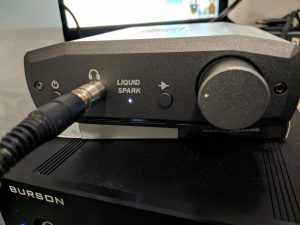
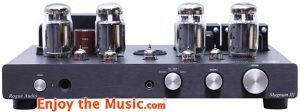
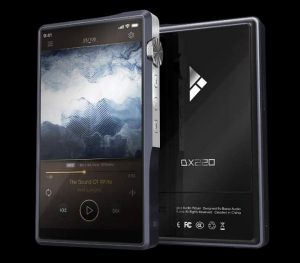
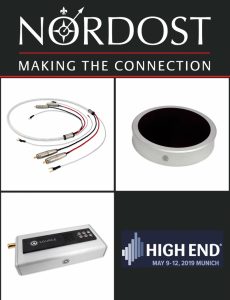

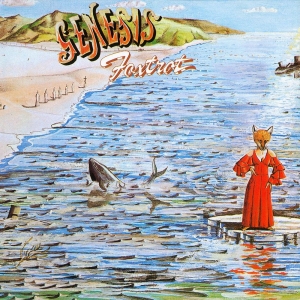



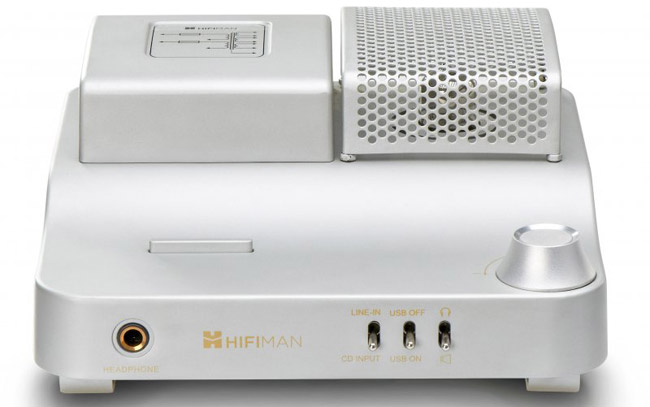
Want to join discussion?
Feel free to contribute!